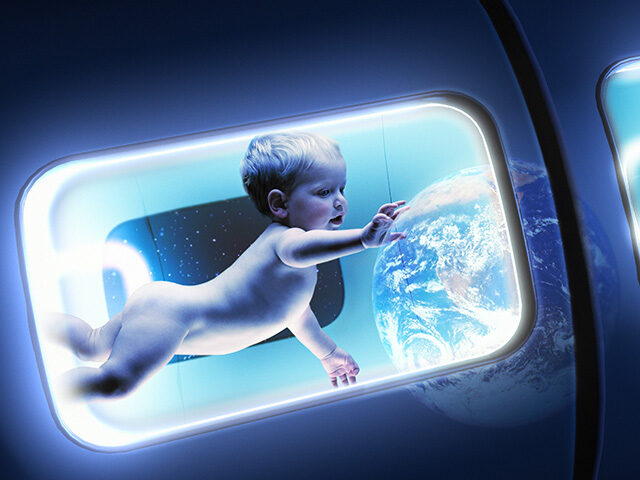Scientists are working to make human reproduction possible in space — an effort they view as an obvious next step as billionaires push to establish colonies on Mars and Venus, BBC Science Focus reported.
“But if surviving among the stars is the long-term aim of such endeavors, there’s a hurdle that needs to be overcome in the short term: human reproduction. Making babies in space, whether by artificial means or naturally, is fraught with issues, most notably radiation and gravity,” according to the Sunday report.
The publication interviewed Dr. Egbert Edelbroek, the CEO of SpaceBorn United, a company based in the Netherlands that is hoping to make reproduction in space possible. The company has already developed a miniaturized IVF and embryo incubator, “which is ready to be launched on a mission to access humanity’s ability to reproduce in space,” the report states. The company also recently completed a drop test from 12.4 miles above Earth in August to test for the impact of radiation on organic material.
Edelbroek said that while “there are so many reasons to leave the Earth,” a main reason is that “we’re not treating Earth nicely with climate change.”
“And there are potential problems with asteroids, artificial intelligence, even nuclear threats. It would be a good idea to have a back-up plan,” he said.
Edelbroek said his company’s focus is learning about partial gravity effects on embryo development since no one knows the gravity level of Mars. The company is also focused on IVF in space and on Earth, and it is interested in the development of artificial wombs for reproduction in space, which are currently being developed to help premature babies.
“Of course, the first step is also using animal models like mammalian gametes and embryos. But eventually, of course, we need to transition to working with human gametes,” Edelbroek said. “So far, for the last five to six years, we have focused on this first stage of reproduction.”
Edelbroek said that while people are often interested in the company’s longer-term mission to achieve childbirth in space, their timelines “were a little ambitious.”
“Eventually, of course, somebody needs to do childbirth in space — maybe we will do it soon,” he said.
He added that natural conception is space is “ethically and medically not a good idea.”
“But there’s this space tourism sector opening up and accelerating. That will be a magnet for couples that want crazy bragging rights, like ‘Hey, we have the very first baby conceived in space naturally.’ That’s not a good idea,” he said.

COMMENTS
Please let us know if you're having issues with commenting.